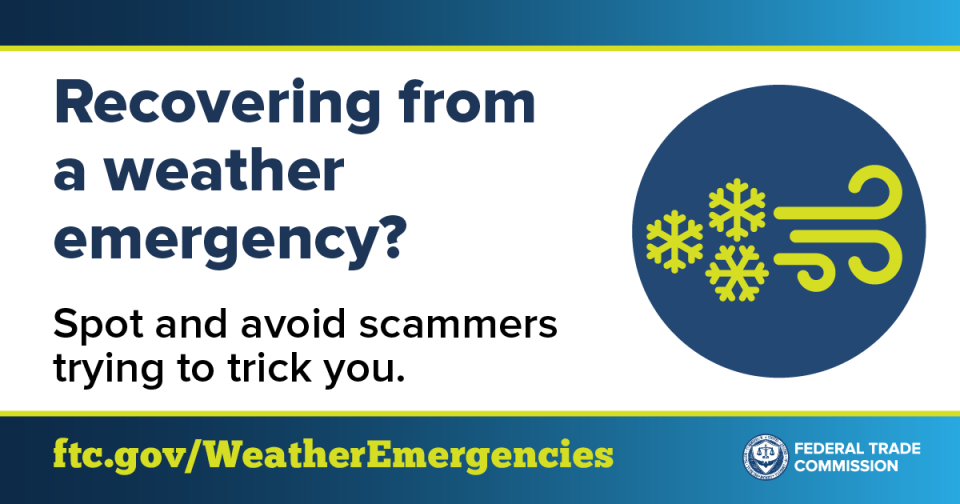Nobody knows how long it’ll take to recover from the devastating flooding and destruction of Hurricane Helene. But we do know it won’t be long before scammers try to cash in on the storm. As you’re working to get back on your feet, learn how scammers operate — and how to avoid them.
Here are a few ways that scammers might try to take your money or personal information after Hurricane Helene.
- Spot imposter scams. Scammers might pretend to be someone “official” like safety inspectors, or someone from government. But anyone asking you for your money or personal information right away is a scammer. Don’t give them money. Ask for identification and verify who you are dealing with.
- Spot FEMA impersonators charging application fees. If someone asks you for money to help you qualify for FEMA funds, it’s a scam. That’s not how FEMA works. Instead, once you have service, download the FEMA Mobile App to get alerts and information.
- Spot home improvement and debris removal scams. Unlicensed contractors and scammers may appear in recovery zones with promises of quick repairs or clean-up services. Walk away if they demand cash payments up front, or refuse to give you copies of their license, insurance, and a contract in writing.
Check out resources for Hurricane Helene from FEMA in English and Spanish.
Spotted a scam? Report it to the FTC at ReportFraud.ftc.gov.

